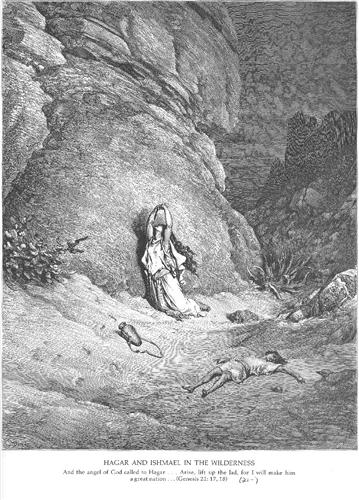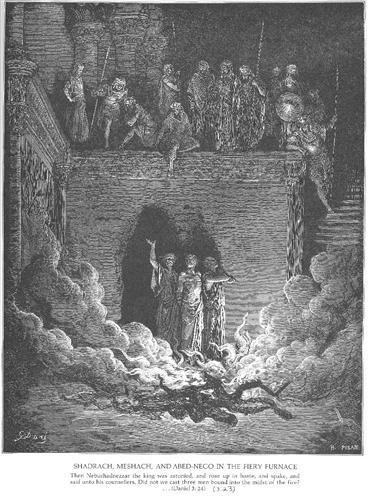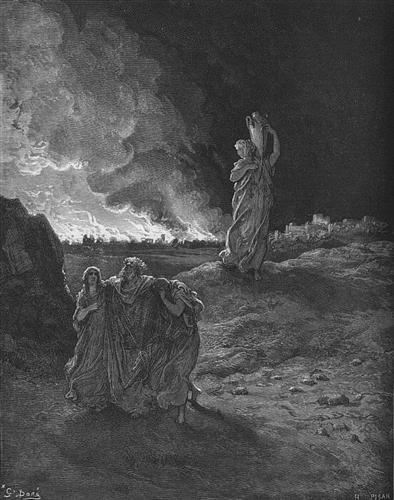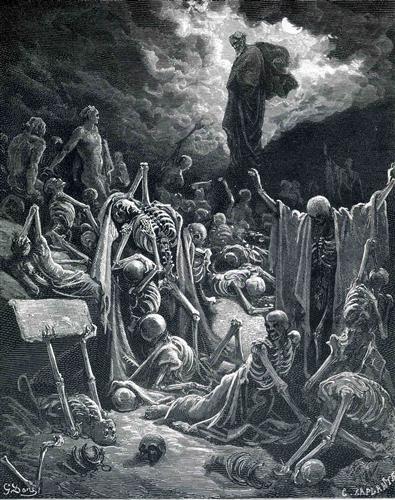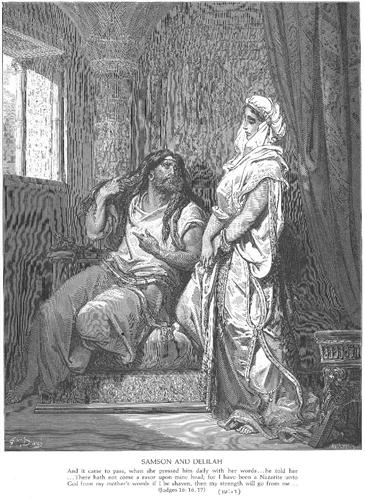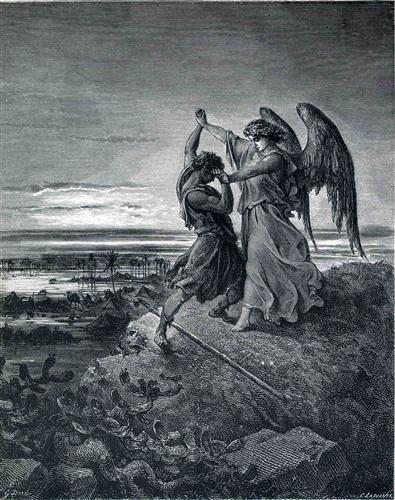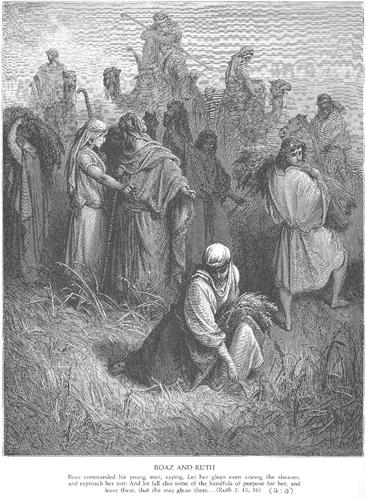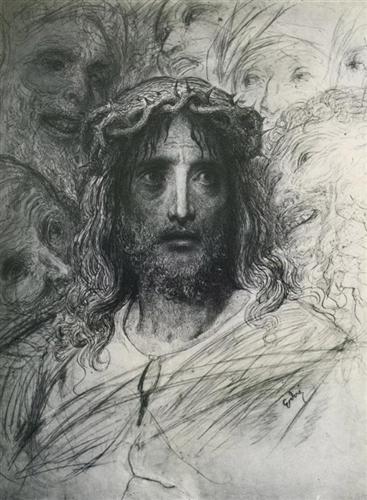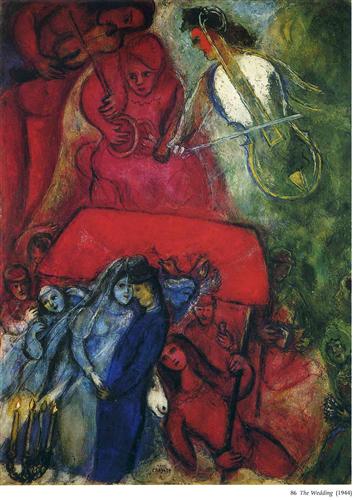Levin has received word from his brother's former mistress, Marya Nikolaevna, that his brother Nikolai is dying. Nikolai is in a filthy hotel far away in a provincial town. Levin decides immediately to go to him alone. Kitty wants to go too. A heated discussion ensues.
Levin:
It's out of the question.
Kitty:
I tell you that if you go, I shall come with you; I shall certainly come . . . Why out of the question?
Levin:
Because it'll be going God knows where, by all sorts of roads and to all sorts of hotels. You would be a hindrance to me.
Kitty:
Not at all. I don't want anything. Where you can go, I can --
Levin:
Well for one thing, then, because this woman's there whom you can't associate with.
Kitty:
I don't know and I don't care to know who's there and what. I know that my husband's brother is dying and my husband is going to him, and I go with my husband too . . .
Levin:
Kitty! . . . If you'll be bored alone, go to Moscow.
Kitty:
There, you always ascribe base, vile motives to me . . . I feel that it's my duty to be with my husband when he's in trouble, but you try on purpose to hurt me, you try on purpose not to understand . . .
The argument escalates.
Levin:
This is awful! To be such a slave!
Kitty:
Then why did you marry? You could have been free. Why did you if you regret it?
Now Kitty is sobbing. Levin kisses her hand, her hair, her hand again.
Silence.
Levin takes her face in both his hands --"Kitty!"
She recovers herself.
They are reconciled.
So she goes with him on his journey to the dingy provincial town.
And she shines.
Upon arrival at the his brother's sickroom, Levin begins to unravel.
He smelled the awful odor, saw the dirt, disorder, and miserable condition, he heard the groans, and thought that nothing could be done to help.
His blood runs cold. He is in agony. He paces in and out of the room. He cannot be natural and calm in his brother's presence.
But Kitty thought and felt and acted quite differently.
On seeing the sick man, she pitied him. And pity in her womanly heart did not arouse at all the feeling of horror and loathing that it aroused in her husband, but a desire to act, to find out the details of his condition, and to remedy them. And since she had not the slightest doubt that it was her duty to help him, she had no doubt either that it was possible, and immediately set to work. The very details, the mere thought of which reduced her husband to terror, immediately engaged her attention . . .
Kitty sends for the doctor and the chemist. She orders her maid and Marya Nikolaevna to sweep and dust and scrub. She begins washing things. By her direction, items are carried into the sickroom and out. She fetches sheets, pillow cases, towels, and shirts from her room. And then, when she sees that Marya Nikolaevna and a servant are struggling to get Nikolai's long limp arm into the sleeve of his shirt, she swiftly closes the door (to prevent Levin from interfering) and comes to his aid.
She realizes that Nikolai is ashamed at being naked before her.
"I'm not looking. I'm not looking!" she said, putting the arm in.
And what does the dying Nicholai think of Kitty?
When the doctor had gone away, the sick man said something to his brother, of which Levin could distinguish only the last words -- "your Katya." By the expression with which he gazed at her, Levin saw that he was praising her. He asked Katya, as he called [Kitty], to come closer.
"I'm much better already," he said. "Why with you I should have got well long ago. How nice it feels!" He took her hand and drew it toward his lips, but as though afraid she would dislike it, he changed his mind, let it go, and only stroked it. Kitty took his hand in both hers and pressed it.
In his last moments he mutters something. Kitty understands what he needs although no one else in the room can make out what he is saying. He wants to be turned over. As Levin lifts his heavy, powerless form, Kitty turns his pillow and fluffs it. She sits by his side and smooths his hair as he dies.
After Nicholai's death, Levin ponders what he was witnessed. He is amazed by Kitty's confidence -- how she dealt with death without fright or delay. He believes Kitty understands the
nature of death. He knows he is more intelligent than his wife. But he knows too "that the brains of many great men, whose thoughts he had read, had brooded over death, and yet knew not a hundredth part of what his wife and [his housekeeper] knew about it."
"Thou hast hid these things from the wise and prudent, and hast revealed them unto babes." So Levin thought about his wife as he talked to her that night.
******************************************************************************
"Thou hast hid these things from the wise and prudent, and hast revealed them unto babes."
Here Levin is referring to Luke 10:21-24 in which Christ commissions seventy disciples to preach the Gospel:
21 In that hour Jesus rejoiced in spirit, and said, I thank thee, O Father, Lord of heaven and earth, that thou hast hid these things from the wise and prudent, and hast revealed them unto babes: even so, Father; for so it seemed good in thy sight.
22 All things are delivered to me of my Father: and no man knoweth who the Son is, but the Father; and who the Father is, but the Son, and he to whom the Son will reveal him.
23 And he turned him unto his disciples, and said privately, Blessed are the eyes which see the things that ye see:
24 For I tell you, that many prophets and kings have desired to see those things which ye see, and have not seen them; and to hear those things which ye hear, and have not heard them.
*All Scripture quotes are from the King James Version unless otherwise stated.

